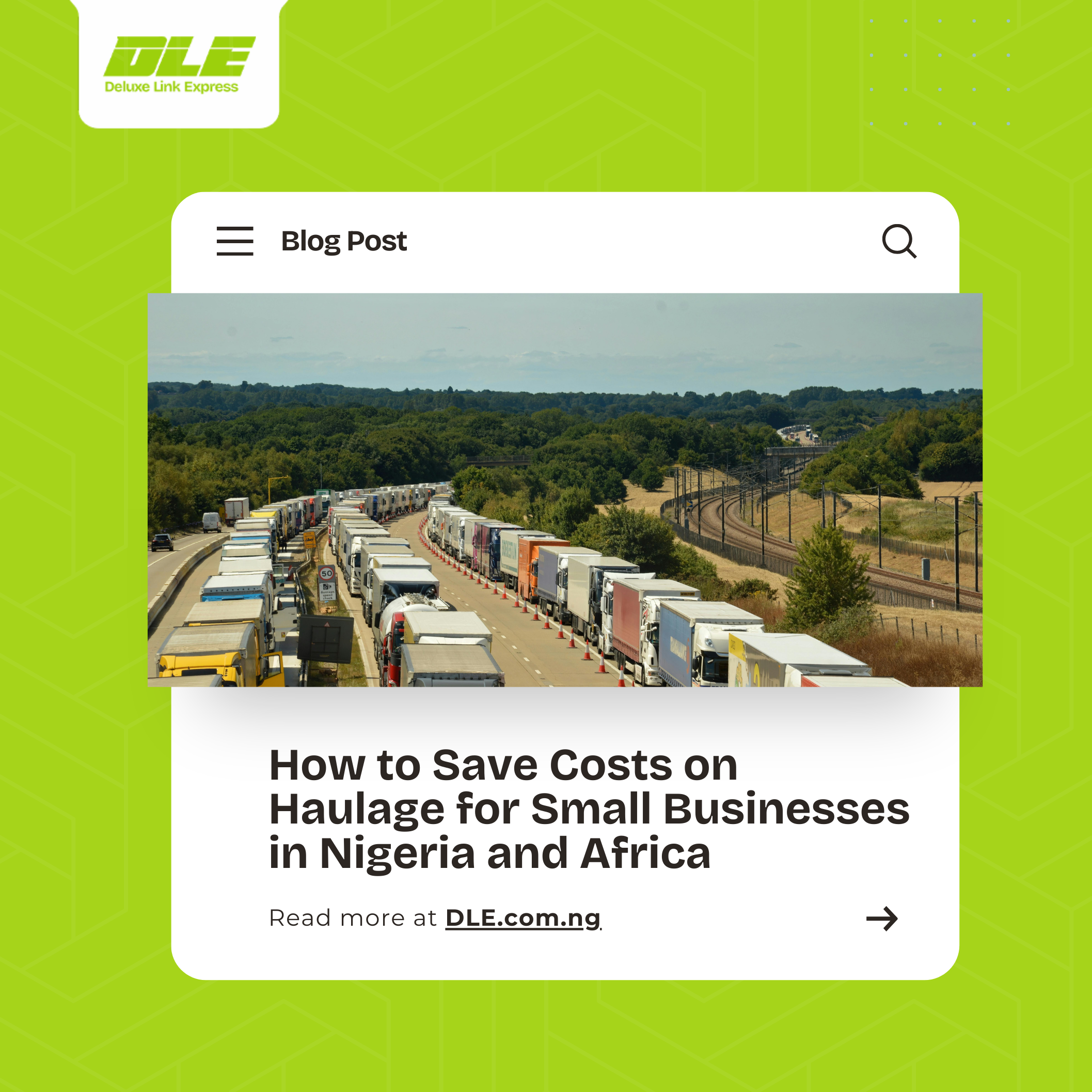Running a small business in Nigeria or across Africa often means watching every naira, especially when it comes to transportation costs. Here are practical ways to reduce your haulage expenses without sacrificing quality or reliability in the African context.
Plan Your Routes Carefully
Planning efficient routes can save significant fuel and time. Many small businesses in Nigeria see immediate savings by combining multiple deliveries in the same area.
Avoiding heavy traffic times in cities like Lagos.
Using GPS and route planning apps that work well in Africa to navigate around poor road conditions
According to a study by supply chain nuggets, businesses can drastically reduce fuel costs by reducing the distance travelled and idle time.
Furthermore, optimized routes allow for more efficient use of vehicles, lowering maintenance costs and increasing fleet lifespan. Your supply chain or business might see significant cost reductions in their operations with fewer kilometers travelled and improved resource allocation.
Consider Sharing Loads
If you don't have enough goods to fill a truck, look into shared loads with other businesses. This approach is growing in popularity across African markets. Cooperative shipping arrangements can save small businesses between 30-50% compared to booking an entire truck.
Negotiate with Local Carriers
Don't accept the first quote you receive. Many Nigerian and African carriers are willing to negotiate, especially if you can offer regular business
Improve Your Packaging
Lighter, more compact packaging means you can fit more items in each shipment. In our experience,optimized packaging can reduce shipping costs by up to 25% through decreased weight and better space utilization.
Think About Timing
Rush deliveries cost more, especially in Africa where infrastructure challenges can already increase prices. When possible, plan ahead and choose standard shipping options.
Consider Using Logistics Aggregators
Several African tech startups like Kobo360 and Lori Systems now offer logistics aggregation services, connecting small businesses with available trucks at competitive rates. The increased use of digital information technology in logistics management has resulted in enhanced competitiveness on global scales, by enhancing flow of information, planning, inventory control, packaging/handling, and transportation."
Keep Your Vehicles Well-Maintained
If you own your delivery vehicles, regular maintenance prevents costly breakdowns on challenging African roads and improves fuel efficiency. In our experience,proper vehicle maintenance can improve fuel economy by up to 30% and significantly reduce breakdown-related delays.
Use Mobile Technology to Your Advantage
Mobile-based shipping management apps designed for African markets can help you compare rates, track deliveries, and identify inefficiencies.
Consider Alternative Fuels Where Available
For businesses with their own vehicles, alternatives like CNG (Compressed Natural Gas) or LPG might offer savings in countries like Nigeria where these fuels are available.
Both CNG (Compressed Natural Gas) and LPG (Liquefied Petroleum Gas) are considered relatively safe alternative fuels. CNG, being lighter than air, disperses quickly in case of a leak, reducing the risk of fire or explosion ¹ ². On the other hand, LPG is heavier than air and can accumulate near the ground, increasing the potential for ignition and fire hazards.
However, it's essential to note that both fuels require proper handling, storage, and maintenance to ensure safety. For instance, CNG tanks must be designed to withstand high pressure, and LPG tanks should be regularly inspected for leaks or damage ¹.
In terms of environmental impact, CNG is considered a cleaner-burning fuel than LPG, producing fewer greenhouse gas emissions and air pollutants ². Additionally, CNG vehicles tend to have longer engine lifespans and lower maintenance costs compared to traditional petrol vehicles ².
Overall, while both CNG and LPG have their safety considerations, they can be viable and relatively safe alternative fuels for businesses with their own vehicles, especially in countries like Nigeria where they are readily available.
Join Local Business Associations
Many Nigerian and African business associations offer shipping discounts to members. The Small and Medium Enterprises Development Agency of Nigeria (SMEDAN) reports that members save an average of 15% on shipping through their collective bargaining programs.
By implementing even a few of these strategies, small businesses across Nigeria and Africa can significantly reduce their haulage costs while maintaining reliable service to their customers.
Sources
https://masgloballogistics.com/2018/11/19/how-to-reduce-haulage-cost-in-nigeria/
https://supplychainnuggets.com/route-planning-and-management-in-africa/
News from Our Blog

How do you create compelling presentations that wow your colleagues and impress your managers?

Olivia Ryne
20 Jan 2024

How do you create compelling presentations that wow your colleagues and impress your managers?

Olivia Ryne
20 Jan 2024

How do you create compelling presentations that wow your colleagues and impress your managers?

Olivia Ryne
20 Jan 2024
